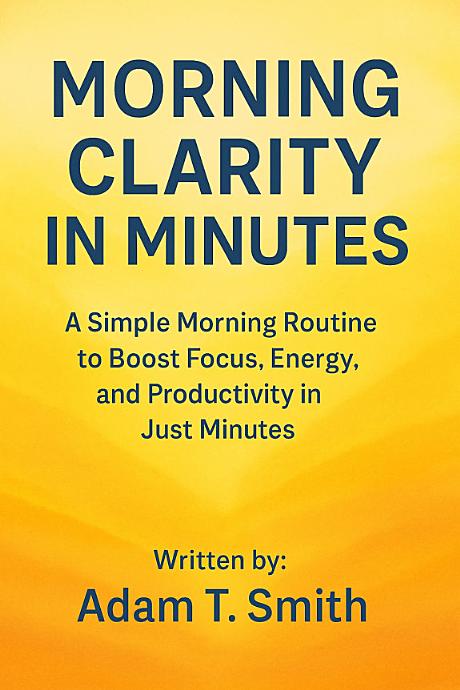MORNING CLARITY IN MINUTES: A Simple Morning Routine to Boost Focus, Energy, and Productivity in Just Minutes
Morning Clarity in Minutes
Starting your day on the right foot can make all the difference. Many of us rush through our mornings, missing out on a crucial opportunity to set the tone for the day ahead. A well-crafted morning routine, even if it lasts just a few minutes, can significantly boost your focus, energy, and productivity.
Why Morning Routines Matter
The benefits of a morning routine are manifold. Firstly, it provides structure and predictability, reducing decision fatigue. Secondly, it allows you to prioritize self-care, which is often neglected in the hustle of daily life. Lastly, a calming routine can reduce stress and anxiety, setting a positive tone for the day.
Simple Steps to a Productive Morning
- Mindful Coffee or Tea: Take a moment to enjoy your morning beverage, focusing on the aroma and warmth.
- Sunlight Exposure: Step outside or open a window to let natural light in, boosting your mood and alertness.
- Deep Breathing: Spend a few minutes on deep breathing exercises to oxygenate your body and clear your mind.
- Journaling: Jot down your thoughts, goals, or gratitude entries to start the day with intention.
These small steps can be customized to fit your personal preferences and lifestyle. The key is consistency and making it a habit.
Scientific Backing
Research supports the efficacy of morning routines in enhancing productivity. Studies show that individuals who follow a routine exhibit improved focus and reduced stress levels. The science behind it is simple: routines help in automating tasks, freeing up cognitive resources for more important decisions throughout the day.
Conclusion
Implementing a morning routine doesn't require a drastic overhaul of your lifestyle. Small, intentional changes can yield significant benefits. Embrace the morning as a time for self-care and preparation, and watch how it transforms your day.
This work examines the invisible frameworks behind human reasoning — how emotion, perception, and memory form a complex network of ideas that shape our daily behavior. By drawing on modern psychology, the book reveals why we cling to certain patterns of thought and how awareness can shift them.
The result is not just a collection of ideas, but a living dialogue that invites participation, self-inquiry, and perspective.
Ultimately, this book leaves the reader with a sense of clarity and curiosity — a reminder that understanding begins when we dare to question what we think we already know.

